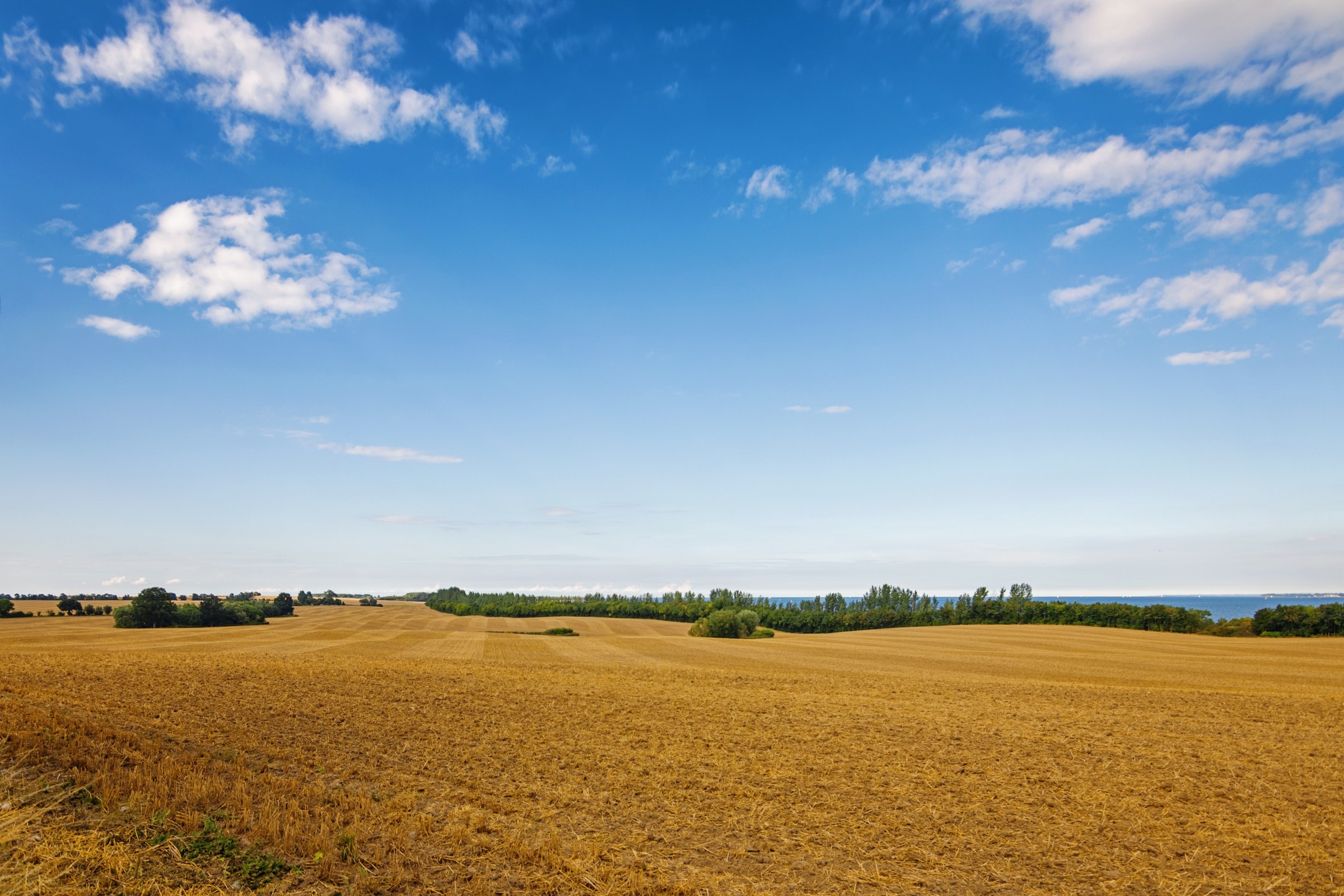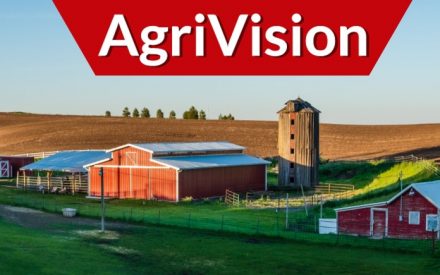Host Katie Wantoch and Simon Jette-Nantel, former Professor at UW-River Falls and Extension Farm Management Specialist, discuss whether a farmer should offer to rent his neighbor’s farm land and at what rental rate.
View Transcript
This is UW Extension’s Farm Management AgriVision Podcast. I am Katie Wantoch, Agriculture Agent with UW-Madison Division of Extension. I will be chatting with fellow Extension Educators as we answer questions from farmers and share our knowledge and expertise on how you can improve your farm management skills. Today I am joined by Simon Jette Nantel professor at UW River Falls and Extension Farm Management Specialist. Welcome Simon to the podcast.
Simon Jette Nantel
Thank you Katie.
Katie Wantoch
Simon, today our question is from a dairy farmer who milks 75 cows and farms 250 acres in Central Wisconsin. He finished combining his corn in early November, and then helped his neighbor finish harvesting his corn 10 days later. His neighbor is 75 years old and is slowing down a bit. He’s thinking of offering to rent the neighbor’s 100 acres of corn ground next year, so he doesn’t have to help him. He’s also hoping to have enough feed for his cows, heifers and steers and maybe sell a little extra. The farmer thinks his neighbor’s will want $150 an acre for rent. It’s productive land and only a mile down the road from his farm. The farmer does note that his corn averaged 185 bushels last year and was 22% moisture. Do you have any advice that you would share with this farmer?
Simon Jette Nantel
Yeah, well, when it comes time, and those opportunities arise to rent land. It’s not every day, oftentimes they’ll come around and you really have to think through to make sure you make the most out of those those opportunities. So going into that type of negotiation if you want with your neighbor. There’s “the easy part”, which is to check your own numbers to see monentarily. How much can you really afford to rent that land? So you’d have to look at, you know, what’s your average yield that you think you can get? And that’s only and you have to think it’s probably a relationship or rent that you’re going to be setting for multiple years. So this gentleman seems to say he’s mentioning 185 bushels, his corn was high moisture there. But you have to think what’s the value of that 185 bushels? And for different prices, there might be years like right now we’re recording this corn prices that we’re expecting for next season are fairly high, but that may not last over the next three or five years. So you have to think 185 if it’s worth $3.50, or it’s worth $4, or if it’s worth $5, like we’re talking currently right now, but what are my operating costs minus those revenues. As I said right now is when thinking $5, it’s a no brainer. $150 would be great. If we’re talking $4, well 185 at $4 and give us 740. Where are your operating costs? So that’s why having an idea of your operating costs, kind of building a budget there, will help you to set what’s the maximum you could offer. Looking at that on the long term. So using kind of an average yield and average value for that corn. That’s in part kind of the “the easy part”. The other thing to set your maximum bid you want. You can also glean some information from the market. We have data from the USDA, if you look at Central Wisconsin, it varies a lot. The data that I have from 2020 irrigated land can go all the way up to $260. But non irrigated cropland is just short of $100. That seems to be the market in but that’s for Central Wisconsin, you can probably get some information from your local market that would be more accurate than that by asking farmers around or landlords that you may know of. If you can get some of that information how, how the rent has been moving in recent years. That also gives you a point of reference about what might be fair, so you’ve got your maximum bid price from your own numbers, then you can look at what the market looks like. And that gives you two different numbers, two different reference points. That’s what I would say is the easy part. Now next comes to that the non-monetary aspect of it, of managing the relationship with a neighbor. How much does that neighbor still wants to be involved with that piece of land? You know, would he feel slighted or insulted that you even offer him to rent that? So you want to manage that. The other thing to manage is also what opportunities renting that land will bring to you? Do you have children that might want to take over the farm and having access to that land will give you, will open opportunities for you further down the road or to expand your herd or bring new possibilities. So there’s all those intangibles I would say, those options that it might open to you and putting a value on that can be really hard, but you have to consider that in your decision. Also. is it the only 100 acres or piece of land that you could potentially gain control over or rent or maybe buy in the future with within a few miles? Or will there be multiple opportunities because you know, of a number of other landlords or farmers in your area that will be available? Those are all factors. And those are hard to quantify. But those are all factors that we want to ponder around.
Katie Wantoch
Yeah, definitely completing a budget for this farmer to work through to look at that. And then like you said, about the neighbor, you know, just because he’s 75 doesn’t mean that he wants to necessarily have somebody else operate his land. And so like you said, looking at that relationship and trying to build that with your neighbor.
Simon Jette Nantel
Yes, see, tried to see like, you could approach it, especially if it’s if it’s a neighbor that you’ve been on good terms with for a long time, obviously, which seems to be the case here. There might be, you know, options to sit down with him, and say, like, what would be a win win situation, maybe he does want to have, instead of having to come and ask for help every time to have a more structured agreement, where you could still be still get involved in some ways. And, but knowing that you will be coming in and do some most of the hard work if you want. So sitting down and teasing that out is kind of that the relationship management part that can be a little, well depends for, depends on people. For some people, crunching the numbers is easy. For some people, the personal relationship management is easy, and depends on where you stand on that.
Katie Wantoch
Yeah, definitely. Some, some people have no problem BSing, and sitting around the table, but really don’t, like us maybe, enjoy the numbers a little more in crunching. Exactly. Yeah, you know, and this person, you know, this, this farmer has been helping his neighbor. So he’s really been the labor piece, and you know, taking over the land and renting it himself. That’s it, that’s a risk. And so we got to factor how much that risk and try to quantify what that risk could be and whether its price, you know, yield? And how much, you know, other costs, this farmer is going to take on with this 100 acres that he might rent?
Simon Jette Nantel
Yeah. And that’s where, you know, if you have a, if you have, if you can build yourself a budget, so you can start looking at different, different scenarios, as you mentioned. You know, different yields. different prices. And also, you have to look obviously, within that budget, what would come into play here is what’s your cost of operation? Like, is your machinery suitable to handle those those extra acres? And do you have also the time, or do you then does, I was talking about opportunities and how it might open things, some options for you. Maybe if you have an extra, an extra 100 acres, in justifies hiring somebody, you know, moving them from a part time to full time position, or you know, different things like that, that it might impact on your business, or it might justify buying new equipment that you’ve been wanting to do anyways, but now, it just allows you to, you know, depreciate that, amortize that debt equipment on more acres.
Katie Wantoch
Yeah. So be sure to discuss, you know, the goals that this farmer might have with his neighbor and just kind of explore it and see what kind of agreement they can come to. Yeah. Yeah. All right. Well, thank you, Simon, for your time.
Simon Jette Nantel
You’re welcome. Thank you.
Katie Wantoch
For more extension Agrivision, podcasts or resources to improve your farm management skills, check out farms.extension.wisc.edu Thanks for listening.
Related Resources
Information in this article was originally published as part of the Agrivision column in Wisconsin Agriculturist .
UW-Madison Extension resources


 AgriVision Podcast Episode 11 - Careers in Agriculture
AgriVision Podcast Episode 11 - Careers in Agriculture


